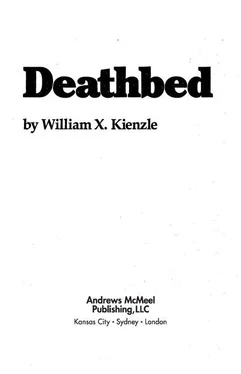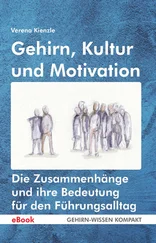“Would you mind explaining that, Father?”
“Look, I’ll admit we aren’t dealing directly with the defective organ. But in performing the hysterectomy the surgeon’s going to have to cut the Fallopian tubes anyway. So what’s the difference? What’s the difference if he cuts the tubes and then removes the defective uterus, or if he simply cuts the tubes, isolating the uterus, and leaves the organ there—to the great benefit of the patient?”
“The difference is, Father, that the surgeon is operating on a healthy organ and on a healthy organ alone. Thus making the action in se mala. ”
It had been a long time since Koesler had heard the term evil in itself, or totally evil.
“And besides that, “ Haroldson continued, “the Pope had something to say about this!”
“The Pope?”
“Yes, the Pope!”
“Which one?”
“PiusXII.”
“That was a long time ago.”
“Words for the ages.”
“Well, what did he say?”
“That when someone halts ovulation to save a damaged uterus, that is direct sterilization and therefore illicit.”
“He was talking about the prevention of ovulation. At most that would refer to the antovulent pill.”
“Or to the Fallopian tubes that carry the ova.”
“I don’t think so. Besides, that opinion must go back to the forties or fifties.”
“Father! That is—”
“I know, I know: the ordinary magisterium.”
“Yes! The ordinary magisterium!”
“I don’t suppose it would help to point out that the usual teaching function of the Church has developed and changed over the years . . . make that over the centuries.”
“Father, since you are a part of this hospital, at least for the time being, maybe it would be good to know just what you believe. Just what theological school do you belong to? Vatican II? Vatican III? Vatican IV?”
Koesler laughed. “I believe about what you do, John, except not quite so rigidly.”
“Not so rigidly! Then you are a situationalist.”
“No. No, just someone who cannot help seeing some grays in moral theology.”
“Grays?”
“John, the theology we grew up with . . . well . . . it was the theology of The One, Holy, Catholic and Apostolic Church. There was development going on, but ever so slowly. And John, I don’t think it will ever be that way again.” Haroldson was about to interpose an objection, but Koesler quickly continued. “Not that I am about to adopt every new thought just because it’s new. But the theology we grew up with is based on a natural law ethic. It’s an absolute and objective sort of morality. And, on the one hand, I think there’s been considerable development in our understanding of the natural law. And, on the other, I think we can stand some mix of proportionalism where we weigh the proportion between good and evil, where the human person is the norm and each person is unique.
“Besides”—Koesler winked—“I’ll bet I could dig up a probable opinion to support doing a tubal ligation to isolate that woman’s uterus.”
Haroldson shook his head. “I don’t care. I’m just glad I’ve lived my life at a time when Church teaching was clear and objective and dependable. Today’s young priests are creating their own Church. And they can have it.”
“As hard as it probably is for you to believe this, I don’t disagree with you all that much. But I’ve got to hand it to you, John; you have an excellent understanding of moral theology. Usually, when I get into a discussion with a layperson, the main problem is that we’re not talking about the same thing. Usually, our disagreement rests with the layperson’s misunderstanding of traditional theology. That certainly is not the case with you. You have an excellent grasp of systematic theology. I can’t help wondering where you got it.”
“It’s nothing.”
“I beg to differ. And you couldn’t have picked it up in just any parochial school. Where?”
Haroldson sipped his coffee as if trying to decide whether to get into this. “The seminary.”
“The seminary! I didn’t know. Tell me about it. How far did you go?”
Haroldson smiled grimly. “From the very beginning to the very end.”
“The very end! I don’t understand: You weren’t ordained a priest?”
“No.”
“Then . . .”
Haroldson hesitated. “The thing is, you see, Father, I’m an ecclesiastical bastard.”
Koesler was neither shocked nor surprised. There were lots of ecclesiastical bastards around. This was not caused by an unmarried mother. It was a case of one’s parents not having their marriage witnessed by a priest. And this was the result of one or both parents opting out of a Catholic wedding; or one or both parents had been previously married and not in possession of the required declaration of nullity for the previous marriage.
“And that,” Haroldson continued, “is an impediment to Holy Orders.”
“Well, yes. But a dispensation is possible. Now it’s routine. “
“Not then. Not when I was a seminarian. Oh, the dispensation from the impediment of illegitimacy was possible. But the petition for the dispensation was by no means routinely made. And in my case, the bishop simply decided not to petition. And that was that.”
“But the bishop must have known the problem of illegitimacy was there. Why would he let you go all the way through the seminary if he wasn’t going to ask for a dispensation?”
Haroldson shrugged. “I don’t know. I’ve always thought that he let me complete my seminary education because it certainly couldn’t hurt me even if I lived the rest of my life as a lay Catholic. In retrospect, I’d have to agree with that. And I suppose he spent some of his time during all those years praying for guidance. The answer to his prayers must have been not to process my case to Rome.”
“My God!” Koesler was appalled. “All those years! You were no better than a puppet. And the bishop was playing puppeteer!”
“Oh, it wasn’t that bad.”
“Wasn’t that bad! You spent nearly twelve years preparing for the priesthood. Early on, the bishop could have told you he wasn’t going to do anything about an impediment that was no more than a Church law that could have been suspended. If nothing else, you could have been freed to find a bishop who would have gone to bat for you.”
“You’re building this up larger than life, Father. I wasn’t blindfolded during all those years. I knew about the impediment and I knew the decision was entirely in the hands of the bishop. You see, for me, the bishop’s decision in the matter was the will of God. I entered the seminary intent only on knowing whether the priesthood was, for me, God’s will. As it turned out, it wasn’t.”
Koesler looked at Haroldson as if for the first time. “I admire your faith, I really do. But I think I would have to look well beyond the whim of a bishop for an expression of God’s will.”
“For me, that was it. Besides, all those years of a fine liberal arts education paved the way for my premed.”
“You were premed!”
“Yes.”
“But you didn’t complete it. You didn’t become a doctor.”
“No, one more incomplete endeavor.”
“But why?”
“No money. Or, rather, I ran out of money. There were no government loans. Nor any other, for that matter, for someone of most modest means. But,” Haroldson began arranging his tray, “neither experience was a failure as far as I’m concerned. Since both of them led to this hospital. This,” he said it fondly, “this Catholic hospital. The seminary trained me in things Catholic. And medical school gave me a special preparation for the hospital. And this has been my life . . . my very life.”
Читать дальше












